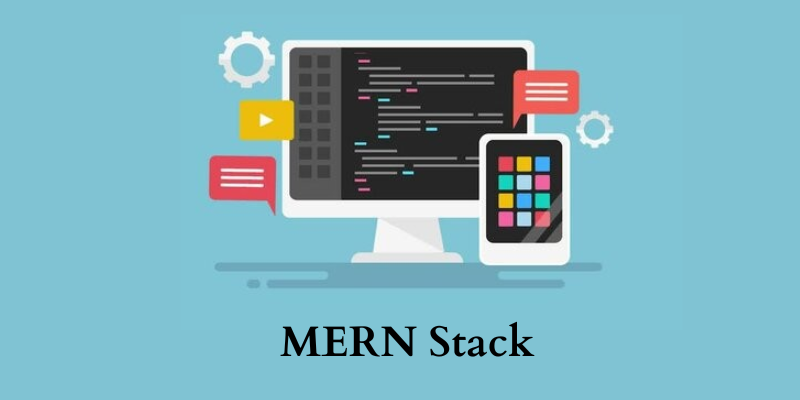
As the demand for modern web applications continues to grow, developers must ensure that their applications can handle increasing traffic and user interactions without sacrificing performance. MERN (MongoDB, Express, ReactJS, Node.js) is one of the most popular full-stack frameworks due to its efficiency and flexibility. When it comes to scaling MERN applications, Google Cloud offers a robust infrastructure to handle high traffic and provide excellent user experiences.
This blog will explore how to effectively scale MERN applications on Google Cloud, focusing on the key elements such as load balancing, database optimization, autoscaling, and more.
1. Why Google Cloud for MERN Applications?
Google Cloud provides a wide range of services that are perfect for scaling applications. It offers reliable infrastructure with global reach, which is ideal for web applications built with the MERN stack. Moreover, Google Cloud’s tools like Google Kubernetes Engine (GKE), Cloud Load Balancing, and Cloud Monitoring make it easy to manage and scale applications effortlessly.
For those looking to get started with this powerful platform, Excel Training in Chennai provides in-depth guidance on how to use its services to build scalable applications.
2. Optimize the MERN Application for Performance
Before scaling your application, it’s important to optimize it for performance. This includes both frontend and backend optimizations.
- Backend (Node.js & Express): Make sure to implement efficient database queries in your Node.js backend using MongoDB. Use techniques like query indexing, schema optimization, and caching to reduce the load on the server.
- Frontend (ReactJS): Minimize JavaScript bundle sizes and use techniques like lazy loading, code splitting, and server-side rendering (SSR) to improve performance.
For developers looking to improve their skills, enrolling in React JS Training in Chennai can be beneficial to learn the best practices for creating high-performing frontend applications.
3. Use Google Cloud Load Balancing
One of the most critical elements of scaling any web application is load balancing. Google Cloud Load Balancing helps distribute incoming traffic evenly across multiple servers, ensuring that no single instance is overwhelmed. This is particularly helpful for handling high traffic volumes in MERN applications.
- Global Load Balancing: With Google Cloud, you can use a global load balancer that directs traffic to the nearest server region, reducing latency and improving performance.
- Autoscaling: Google Cloud can automatically scale the number of backend instances based on incoming traffic, ensuring that your application remains responsive even during peak usage.
For developers looking to gain hands-on experience with cloud technologies, MERN Stack Training in Chennai covers topics like deploying and scaling full-stack applications using cloud platforms.
4. Leverage Google Kubernetes Engine (GKE)
Google Kubernetes Engine (GKE) is one of the most powerful tools for deploying and managing containerized applications. Kubernetes allows you to scale your application horizontally by adding more instances of your services. This is essential when scaling MERN applications to handle increasing loads.
- Containerize the MERN Application: First, ensure that your MERN application is containerized using Docker. This encapsulates the application and its dependencies, making it portable and easier to deploy across different environments.
- Deploy to GKE: Once containerized, deploy the application to GKE. GKE handles cluster management, scaling, and load balancing, enabling your application to grow with demand.
For those interested in learning how to manage these deployments remotely, MERN Stack Online Course is an excellent resource to get started with Kubernetes and Google Cloud.
5. Optimize MongoDB for Scalability
As your MERN application scales, your MongoDB database needs to keep up with the increasing data. MongoDB offers several features that make it easy to scale your database along with your application.
- Sharding: MongoDB allows you to share your database, which means distributing your data across multiple servers. This ensures that your database can handle large datasets and high transaction volumes without slowing down.
- Indexing: Create efficient indexes for commonly queried fields to ensure that your database queries are optimized for performance.
Proper database optimization is critical to the performance of your application. If you’re new to MongoDB and database management, consider Advanced Excel Training Online to get foundational knowledge in managing data that can apply to more complex database systems like MongoDB.
6. Set Up Autoscaling
Autoscaling is a feature that automatically adjusts the number of active servers or instances based on real-time traffic demand. Google Cloud’s autoscaling feature works well with both Compute Engine instances and GKE.
- Horizontal Autoscaling: This feature automatically adds more instances when traffic increases and reduces instances when traffic subsides, ensuring you’re only paying for the resources you need.
- Custom Metrics: You can also define custom metrics like CPU usage or memory consumption to trigger autoscaling events, ensuring that your application remains performant even during heavy loads.
For developers seeking to dive deeper into cloud scaling strategies, Google Cloud Training in Chennai offers a comprehensive course on autoscaling and other cloud computing practices.
Monitoring is a key component of scaling an application. Use Google Cloud Monitoring to track critical metrics like response times, traffic volume, and error rates. This will give you insights into when to scale and optimize your application.
To learn how to integrate monitoring tools with your projects, you can enroll in React Js Online Course courses, which cover the implementation of best practices for monitoring frontend applications. Scaling a MERN application on Google Cloud involves a series of optimizations, from backend and frontend improvements to leveraging cloud-native tools like Google Kubernetes Engine, load balancing, and autoscaling. With proper database management and real-time monitoring, your MERN stack applications can scale effortlessly to meet user demands.